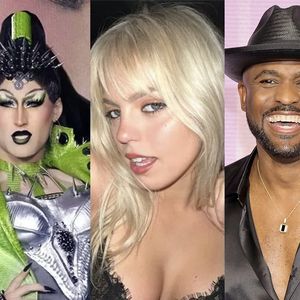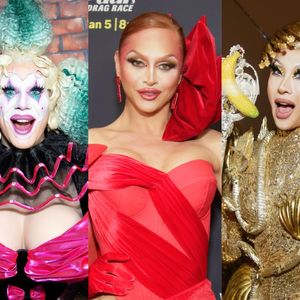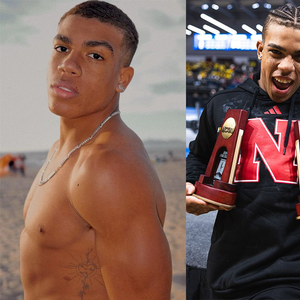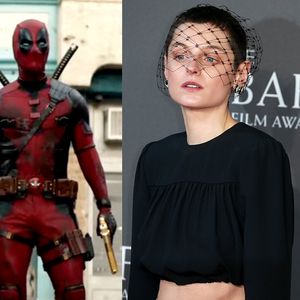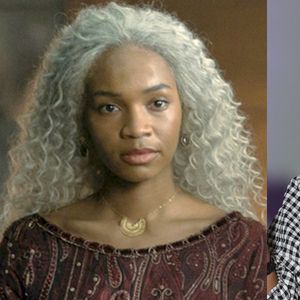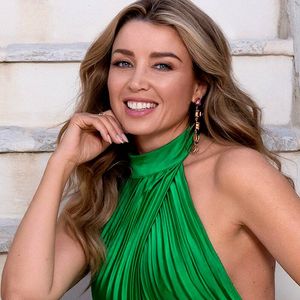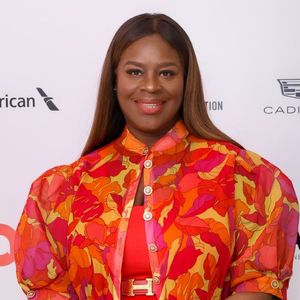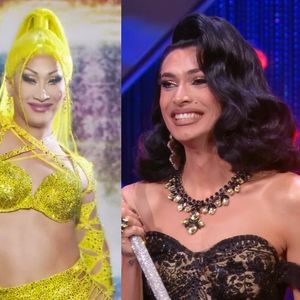Young children
live in their own worlds. They see the same people every
day, do the same things, and eat the same foods. Maybe they
put ketchup or ranch dressing on pasta or pancakes,
and that's considered normal--in their little
worlds. Generally, all this routine is considered good
because it makes children feel safe and comfortable with
themselves and their loved ones. A sheltered life,
though, can have consequences later, both socially and
academically.
A new book and a
new TV show both tackle diversity, couched in characters
and words that kids can already relate to. Carson Kressley,
the author of the picture book You're Different and
That's Super (Simon & Schuster), grew up
in a fairly rural, blue-collar community in
Pennsylvania, which he says was "not a place where
difference is tolerated or celebrated." Kressley is best
known as the fashion guru on Bravo's Queer Eye for
the Straight Guy.
He says he wrote
the book largely based on his own feelings of being the
odd boy out, being gay, and being an equestrian rather than
a team athlete. He can now joke that he was always the
last one picked for the dodgeball team, but, at the
time, it was hurtful. He also knows he wasn't the
first or last to go through it. "This is for anyone who is
skinny, fat, black, white, gay, or straight--anything
that wreaks havoc with self-esteem," Kressley says.
"Sometimes kids have parents they can talk to,
sometimes not. I want kids to know they're not
alone."
In You're
Different, a young colt goes from being the most
popular one on the farm to the most ostracized when he
grows a single horn from the top of his head. Turns out the
horse is a unicorn. Even the unicorn thinks it's a
terrible thing to be different--even though he
has the whitest coat and most golden mane--until
his horn saves the day and everyone else celebrates his
uniqueness.
Kressley used a
horse barn as his analogy to the cafeteria table because,
first of all, he knows horses well, down to their
mannerisms, and, second, because they have a herd
mentality. The book is the result of an idea he's had
in his head for a long time, he adds. "Little kids
don't know about prejudice or social pressure. They get to
be themselves...but somewhere along the line, between
5 and 8, they start to feel peer pressure. For a kid,
the perspective is so small and so limited, they don't
know about all the other people out there just like
them." He acknowledges he's an unlikely kiddie book author
since he's not a parent, and he probably doesn't have
much of a fan base in the under-10 crowd, but, he
says, "I was a kid once. The challenges are the same
even if the circumstances are different."
The creator of
the new PBS series It's a Big Big World,
Mitchell Kriegman, wants to encourage children's curiosity
of things that are unknown and imprint a positive
image of all the creatures, places, and things on
earth. Home base for the show is the World Tree,
located in the rain forest and home to a diverse group of
animals and the show's metaphor for the world as a whole. "I
think that kids always are interested in animals; that
lasts from an early age to 7 or 8 at least, if not
longer. Kids are interested in the way they [animals]
behave and why they do things. All kids are interested in
creatures and how they get along. They might ask, 'Why do
all dogs get along even though they might look so
different?' " Kriegman says.
In one upcoming
episode (It's a Big Big World premieres January
2), Bob the Anteater wonders what would it be like if
the world played one big game of tag. "It's a positive
sentiment about working together and being a community
despite differences," says Kriegman, who also created
Bear in the Big Blue House. As a parent,
Kriegman says he's concerned that neither parents nor
children have a way to view the world--in its
entirety--positively. Instead, when people think
globally, they're worrying about the effects of huge
storms and other disasters.
He recites a few
lyrics from the 1990 song "From a Distance" by Bette
Midler: "From a distance, the world looks blue and green and
the snow-capped mountains white." Yes, it's a bit cheesy,
Kriegman says, but it's the way he wants kids to think
about the world, as "a grander, more wonderful
picture" than what they see in their own community or
in narrowly focused pictures of other places. He also hopes
acceptance of the broader world will fuel an interest in
science, something he doesn't see happening in
elementary school classrooms. To be interested in
science, children must have a working knowledge of what's
already out there. (Samantha Critchell, via AP)











































